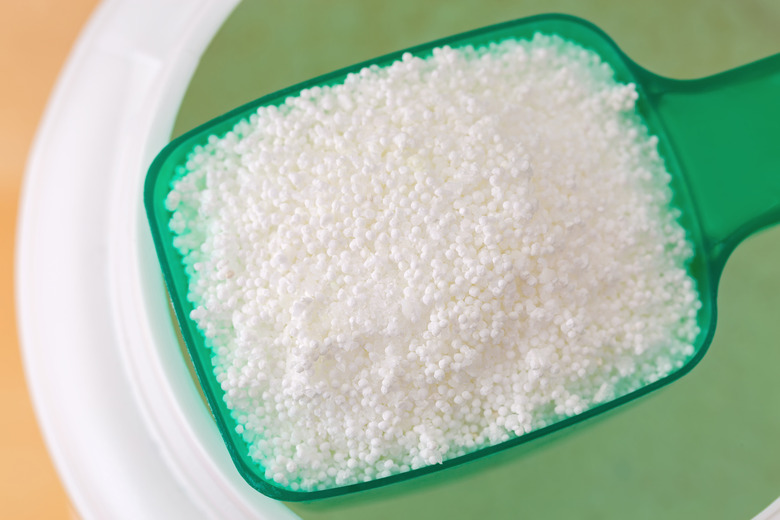Differences Of Sodium Hydroxide Vs. Sodium Carbonate
Sodium hydroxide and sodium carbonate are derivatives of the alkali metal sodium, atomic number 11 on the Periodic Table of Elements. Both sodium hydroxide and sodium carbonate have commercial importance. The two are unique and have different classifications; however, sometimes they are used interchangeably.
Classification
Classification
Sodium hydroxide is considered to be a simple base, whereas sodium carbonate is considered to be a salt of the weak acid, carbonic acid.
Formation
Formation
Sodium metal reacts with water to form sodium hydroxide plus hydrogen gas: 2 Na + 2 H?O ? NaOH + H??. Sodium hydroxide reacts with carbonic acid to form sodium carbonate plus water: 2 NaOH + H?CO? ? Na?CO? + H?O.
Interchangeable Uses
Interchangeable Uses
If sodium hydroxide and sodium carbonate can used interchangeably, it may be advisable to use the carbonate because it is less hazardous. Reacted with acids stronger than carbonic acid, both produce the same salt.
Sodium Carbonate
Sodium Carbonate
Sodium carbonate is known as "soda ash," since it can be extracted from the ashes of plants. Washing soda refers to its laundry use. Sodium hydroxide is too alkaline for such an application. Sodium carbonate is also used in water treatment and in the manufacture of glass.
Fun Fact
Fun Fact
Sodium hydroxide, also called lye, was used by pioneers to make soap from animal fats.
Cite This Article
MLA
Summers, Vincent. "Differences Of Sodium Hydroxide Vs. Sodium Carbonate" sciencing.com, https://www.sciencing.com/differences-hydroxide-vs-sodium-carbonate-5584741/. 13 March 2018.
APA
Summers, Vincent. (2018, March 13). Differences Of Sodium Hydroxide Vs. Sodium Carbonate. sciencing.com. Retrieved from https://www.sciencing.com/differences-hydroxide-vs-sodium-carbonate-5584741/
Chicago
Summers, Vincent. Differences Of Sodium Hydroxide Vs. Sodium Carbonate last modified March 24, 2022. https://www.sciencing.com/differences-hydroxide-vs-sodium-carbonate-5584741/
